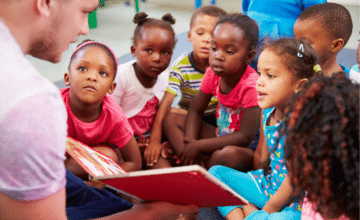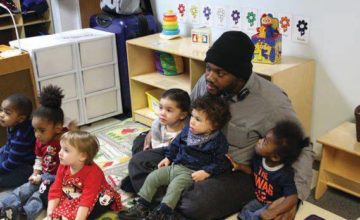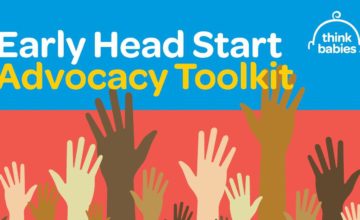
Key Focus Areas and Mission
The National Center on Early Childhood Development, Teaching and Learning (NC-ECDTL) identifies, develops, and promotes the implementation of evidence-based practices that lead to positive child outcomes across 0-5 early childhood programs.
This center for early childhood development is designed to improve the health and well-being of babies and their families and is operating under a five-year grant aimed at impacting the training and technical assistance needs of Head Start and child care programs and systems.
The goal of NC-ECDTL is to identify, develop and promote the implementation of evidence-based practices that are culturally and linguistically responsive and lead to positive child outcomes across 0-5 early childhood programs, as well as to support strong professional development systems.
Our Partners
The NC-ECDTL approach is carried out by a consortium of partner organizations.
Together, the system supports Head Start and Early Head Start programs as they provide high-quality comprehensive services to pregnant women, children and families and support the school readiness of young children who live in poverty.
- ZERO TO THREE
- University of Washington’s Cultivate Learning and I-LABS
- Vanderbilt University
- Child Trends
- Children’s Equity Project
As the primary partner, ZERO TO THREE is responsible for setting the overall direction for the center and providing leadership as we work toward addressing the goals of the center. NC-ECDTL is funded by the Office of Head Start (OHS) and the Office of Child Care (OCC) within the Administration for Children and Families, U.S. Department of Health and Human Services.
Recent Resources

Professional Development
The iPD Portfolio is a learning management system created to support ongoing professional development for staff in Head Start and child care settings. It has accessible, self-paced courses based on staff roles and interests.
Explore resources to learn more about our center for childhood development and the importance of quality teaching and learning in the early education period.
Use our resources to improve your knowledge and be a part of the movement urging policymakers to prioritize the health and mental health of young children in families below the poverty line.
- Multicultural Principles: The Multicultural Principles for Early Childhood Leaders is organized into three action categories: Explore, Nurture and Grow. These three actions describe what Head Start leaders and staff can do to ensure program services embrace and use the principles in everyday practice
- Professional Development: The iPD Portfolio is a learning management system created to support ongoing professional development for staff in Head Start and child care settings. It has accessible, self-paced courses based on staff roles and interests.
- Early Head Start Advocacy Toolkit: Learn more about Early Head Start and take action using our resources and tools to urge your policymakers to prioritize babies.
- “Everybody Benefits”: Family Child Care Providers’ Perspectives on Partnering With Early Head Start: This article explores questions related to the benefits and challenges of family child care partnerships with EHS.
- Increasing Equitable Access to Early Head Start and Head Start: ZERO TO THREE’s Newest State Policy Initiative is designed to increase equitable access and help with technical assistance and funding.
The Impact of Early Head Start
The foundation for babies’ lifelong learning is built between pregnancy and age three. Families experiencing poverty may not have the capacity to support their young children in the way they need. That is where Early Head Start can help. Early Head Start is a federal program offering services that support positive early development to help babies and toddlers prepare for school and later life.
Along with vital development services and care for babies, Early Head Start also works with parents to help them find employment. However, according to the State of Babies Yearbook, this program only reaches 11 percent of eligible infants and toddlers. This federal program supports the lifelong learning capacity of young children and helps parents improve their economic security.
Early Head Start has been a blessing to me as a young, working mother trying to get back into college.
Kaylah Dessausure
Help Us Make Early Head Start a Priority
Early Head Start is poised to offer babies safe care and crucial developmental services while helping parents improve their economic security. If you would like to help us prioritize this program, donate or get involved so we can support more families in accessing what they need to thrive.
To improve your knowledge or boost your career, view ZERO TO THREE's Early Childhood Professional Development Calendar to discover online early childhood education programs. Let's prioritize Early Head Start and quality teaching and learning in the early education phase to support the children who are our future.

Increasing Equitable Access to Early Head Start and Head Start


